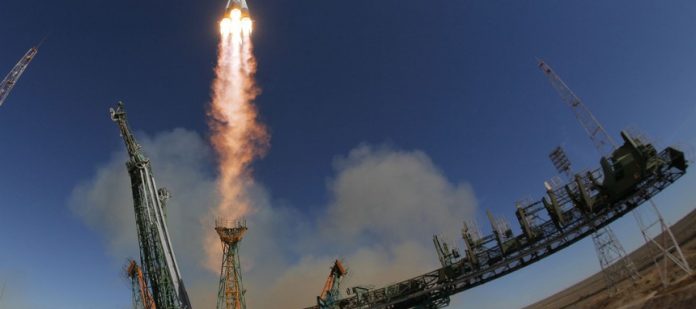We’ve been hearing for months about Russia’s deployment of troops at its border with Ukraine, and the plans that Vladimir Putin has for the former Soviet country. While tensions between Russia, Ukraine, and other countries are a concern, another part of the Soviet Union is also worth our attention.
We don’t hear as much about Kazakhstan as we do about Ukraine. It is possible that you may have heard that Biden’s failed nominee for Comptroller for the Currency, Saule Omarova, was born in Kazakhstan. However, Kazakhstan should be front and center these days to avoid more trouble.
Tensions erupted after the Kazakh government lifted fuel price controls, causing a sharp rise in gasoline prices. Violent protests followed, and the authoritarian government tried to clamp down with both police and restrictions on internet use.
Russia has sent troops to quell violence and President Kassym Jomart Tokayev gave police and military the right to shoot at protestors. A police spokesperson said that thousands of people were arrested and that “dozens” of attackers had been eliminated. Former intelligence chief Karim Masimov was also arrested for treason.
This is a frightening situation that has been underreported by American media outlets. One analyst tries to bring more attention to it.
Clint Ehrlich is a Moscow-based computer scientist and is associated with KRN, MGIMO University and the Claremont Institute. He posted a Twitter thread explaining why we should be paying more attention to Kazakhstan on Friday.
Ehrlich leads by stating that tensions in Kazakhstan “significantly increase the risk of NATO/Russia conflict.”
Ehrlich says that Kazakhstan is just as important to Russian interests as Belarus and Ukraine. First, let’s not forget about Russia’s border to Kazakhstan. It is the longest continuous land border anywhere in the world. It spans 4,750 miles. This border is more than the 3,145-mile land border between the U.S.A. and Canada.
Kazakhstan is home to a critical missile testing site, and it is also vital for the Russian nuclear fuel industry.
Ehrlich tweeted, “Russian-backed Uranium mine operations are operating in the country.” “Uranium from Kazakhstan has been enriched in Novouralsk in Russia, and then returned to Kazakhstan for nuclear-fuel assembly use.”
The Baikonur Cosmodrome of Russia is also in Kazakhstan. If you are a NASA history buff like me, then you will recall that Baikonur was where the Russians launched their Soyuz spacecraft during the race for space. It is also where we launched our astronauts from the International Space Station during the Obama years when we didn’t have the means to launch them into orbit.
Ehrlich also points out that Russia is interested in the Kazakhstani ethnicity. Ethnic Russians make up a minority in Kazakhstan and are Russian Orthodox Christians. Continued tensions could lead to Christians opposing Kazakh Muslims.
Russia already sent 3,000 troops to assist the Kazakh government. What’s stopping Putin from sending more? Protesters might be hesitant to rebel against a Russian-backed government if Russia intervenes on their behalf.
Why now? Ehrlich believes that it is a matter of timing, as Putin and his conspiratorial bent would have you believe.
Putin demanded NATO not to admit Ukraine into its organization and has threatened to invade Ukraine to ensure that this doesn’t happen. Talks between Russia and NATO over Ukraine were to start next week.
Ehrlich claims that Putin views the tensions in Kazakhstan as an act of hybrid war in which Western organizations encourage protest and unrest to destabilize a country near Russia’s borders.
Tokayev asked Russia for help with its version of NATO, The Collective Security Treaty Organization (CSTO), while CBS News reported that Russia refers to Afghanistan’s conditions as a belligerent act.
Russian Foreign Ministry stated Thursday that the country had decided to send troops to Kazakhstan because it saw the events in friendly countries as an attempt to undermine security and integrity. The statement did not provide any further details about the purported “outside” inspiration for the protests. All this helps Russia to see the West as a threat in its spheres of influence.
Ehrlich stated that “In the short-term, Kazakhstan is volatile while Russia’s freedom of maneuver in Ukraine may be constrained.” This will not encourage Moscow to resolve the crisis in the long term. It will instead increase perceptions of the West’s existential threat. Russia will continue to oppose West-related threats. We haven’t seen much coverage about Kazakhstan in the U.S., particularly when compared to Ukraine.
Ehrlich tweeted, “In America, the situation in Kazakhstan is a small news article.” “In Moscow, it is currently receiving 24/7 coverage like it’s an apocalyptic menace to Russia’s security,” Ehrlich tweeted. This was even on January 7, when Russian Orthodox Christians celebrate Christmas.
Ehrlich believes Russia’s actions regarding Kazakhstan should be given a greater place in the news cycle than they currently do.










